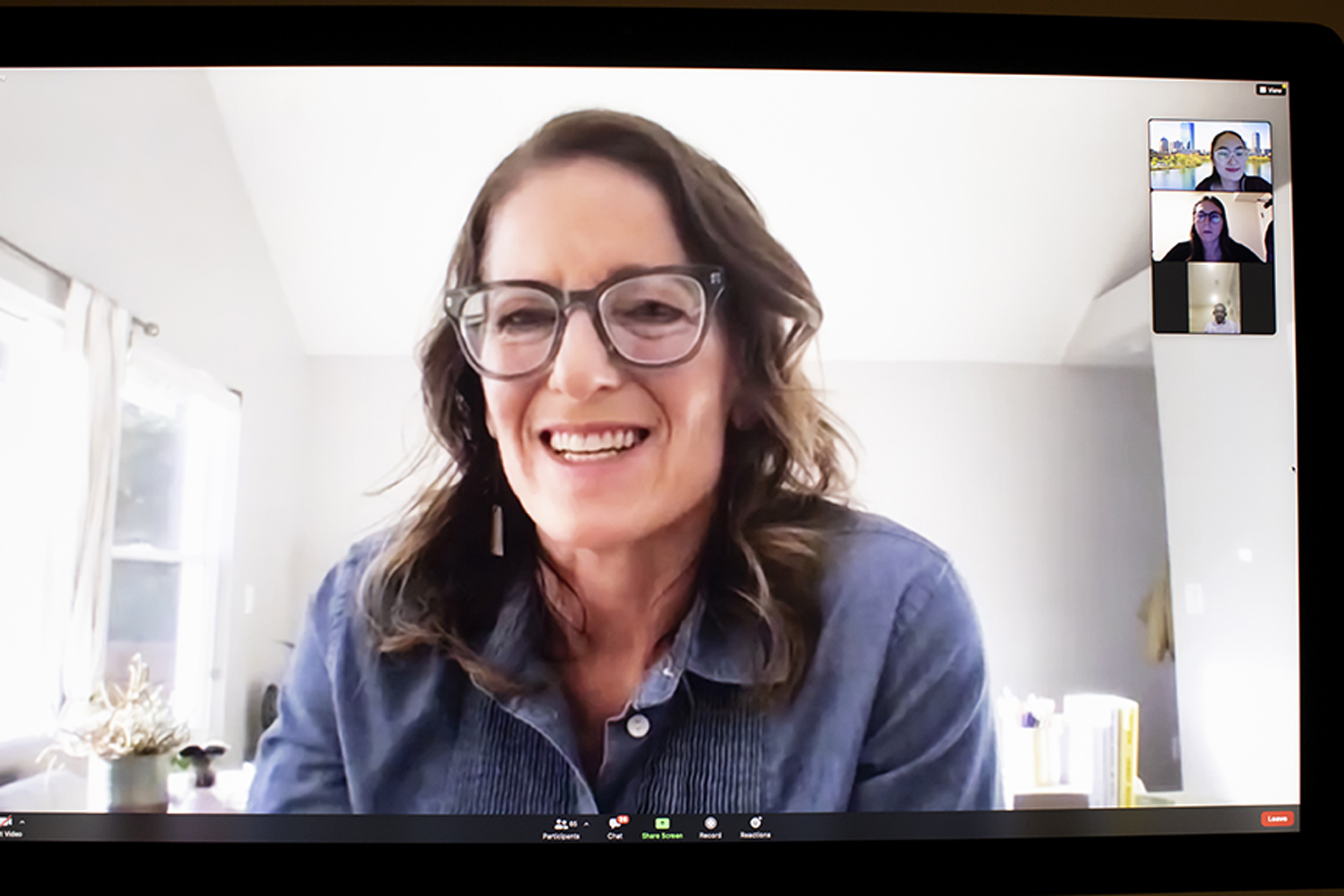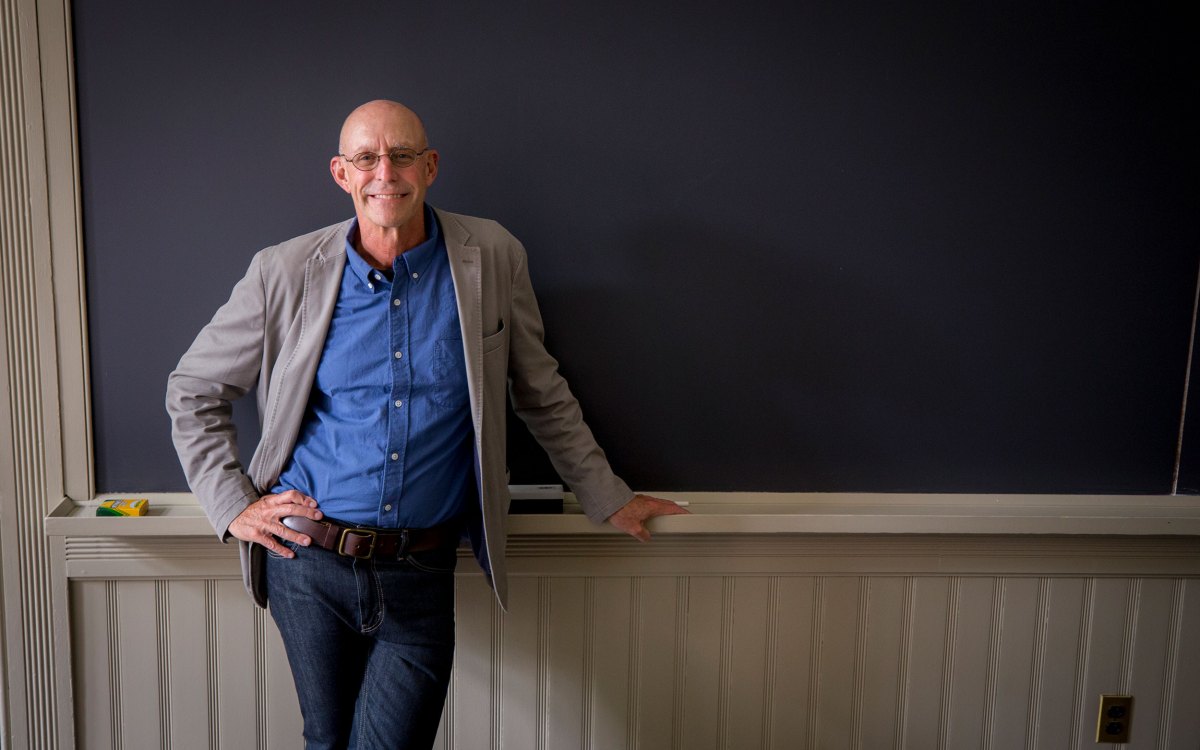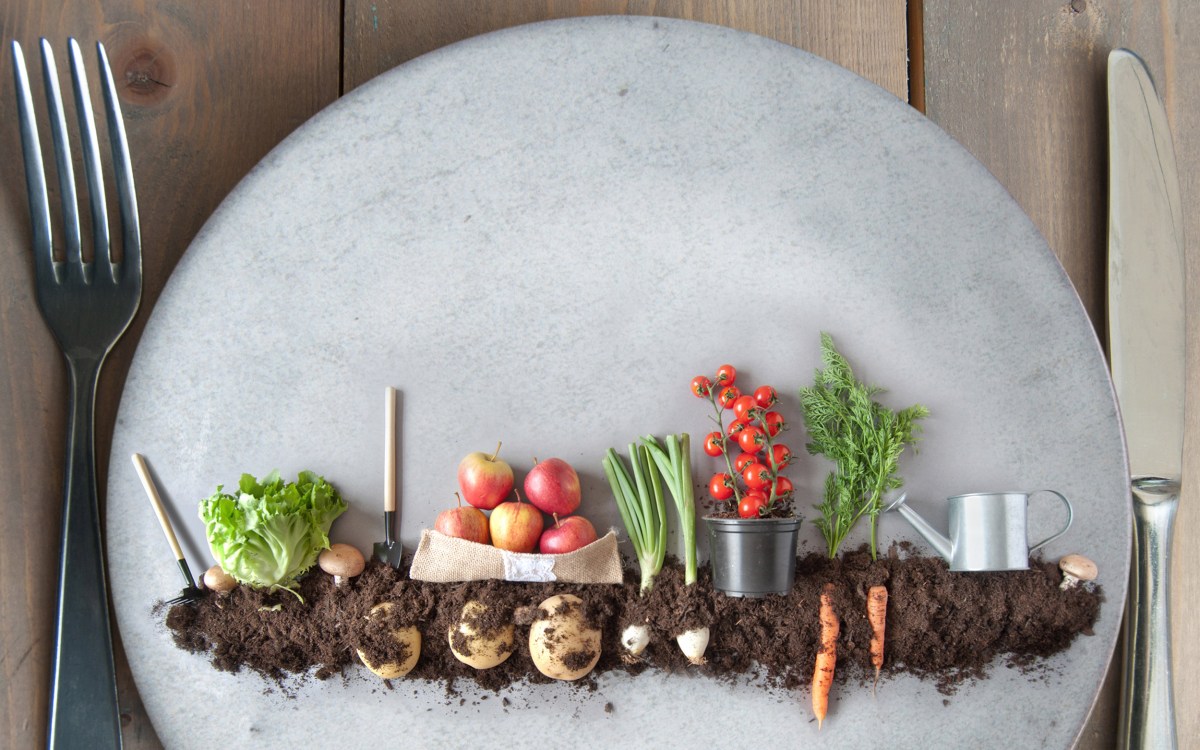
Larissa Zimberoff found that while the new food movement is seeking a more environmentally friendly way to produce food, they aren’t always thinking about the healthiest option for the consumer.
Rose Lincoln/Harvard Staff Photographer
Tech on a plate
Author discusses new ways of producing what we eat and drink
A future in which food is plant-based or grown in a petri dish won’t necessarily translate to better health or progress against climate change, says the journalist Larissa Zimberoff, whose latest book, “Technically Food: Inside Silicon Valley’s Mission to Change What We Eat,” explores the role of the high-tech sector in what lands on our tables.
On Tuesday, Zimberoff zeroed in on the new food-tech sector — think burgers made from pea protein or cheese grown in the lab — in a talk sponsored by Harvard’s Food Literacy Project. Other topics in the hourlong discussion included government regulation, fast food, industrial versus vertical farming, Wall Street investors, and chicken nuggets in Singapore that are a mix of cultured meats and plant-based products.
New players in food, many based in Silicon Valley and backed by bullish investors, are looking more like technology or science ventures, said Zimberoff. Impossible Foods, famous for its plant-based meat substitutes, names new versions of its burger 1.0 and 2.0 — “like they’re software.” The author detailed one startup’s efforts to find a microbe that can expel the proteins needed for the fermentation of cheese minus the dairy, and a vintner in California who has installed sonar probes in his wine drums that send out pings to help him identify potential problems with fermentation.
Wine-making is a skill passed on through the centuries. “Yet here we are,” Zimberoff said, “it’s got a new way to be done.”In her research, Zimberoff has found that players in the new food movement are almost always seeking a better, more environmentally friendly, world — but with a rub. They are focused on less pollution or animal protection, she said, but they aren’t always thinking about the healthiest option for the consumer. “They are mission-based but profit-driven,” said Zimberoff, adding, “I worry about this profit being tied to food because it sets us up to be the ones that don’t win out.”
With a background in high tech, a passion for food, and a master’s in creative writing from the New School, Zimberoff began writing about the growing intersection between food and technology around 2015. But the author has been interested in food and its effects on the body since childhood. Diagnosed with Type 1 diabetes at the age of 12, she told the audience that she has X-ray vision when it comes to diet. “I look at macronutrients like fiber and protein and fat and carbohydrates,” she said. “I have to be the computer for my body. … I expect food to be much more than many people do.”
Topping Zimberoff’s list of plant-based products to watch are algae, such as kelp or seaweed, and mycelium, the root structure of mushrooms that can be used as a protein substitute.
Looking ahead, Zimberoff said she is optimistic about a successful new food model, one that is good for people and for the planet. In her view, such a system will require stronger oversight from the FDA and the USDA, solutions to equity and access issues around healthy foods, more collaboration and science-based support from experts and, perhaps most importantly, a deep desire on behalf of the public to better understand what it is exactly they are eating.
“People don’t know about their food, we’ve never known about our food, we’ve never done the work to know about our food,” she said. “You’ve got the nutrition facts panel, read it and look up something you don’t know … that’s how you start learning.”








